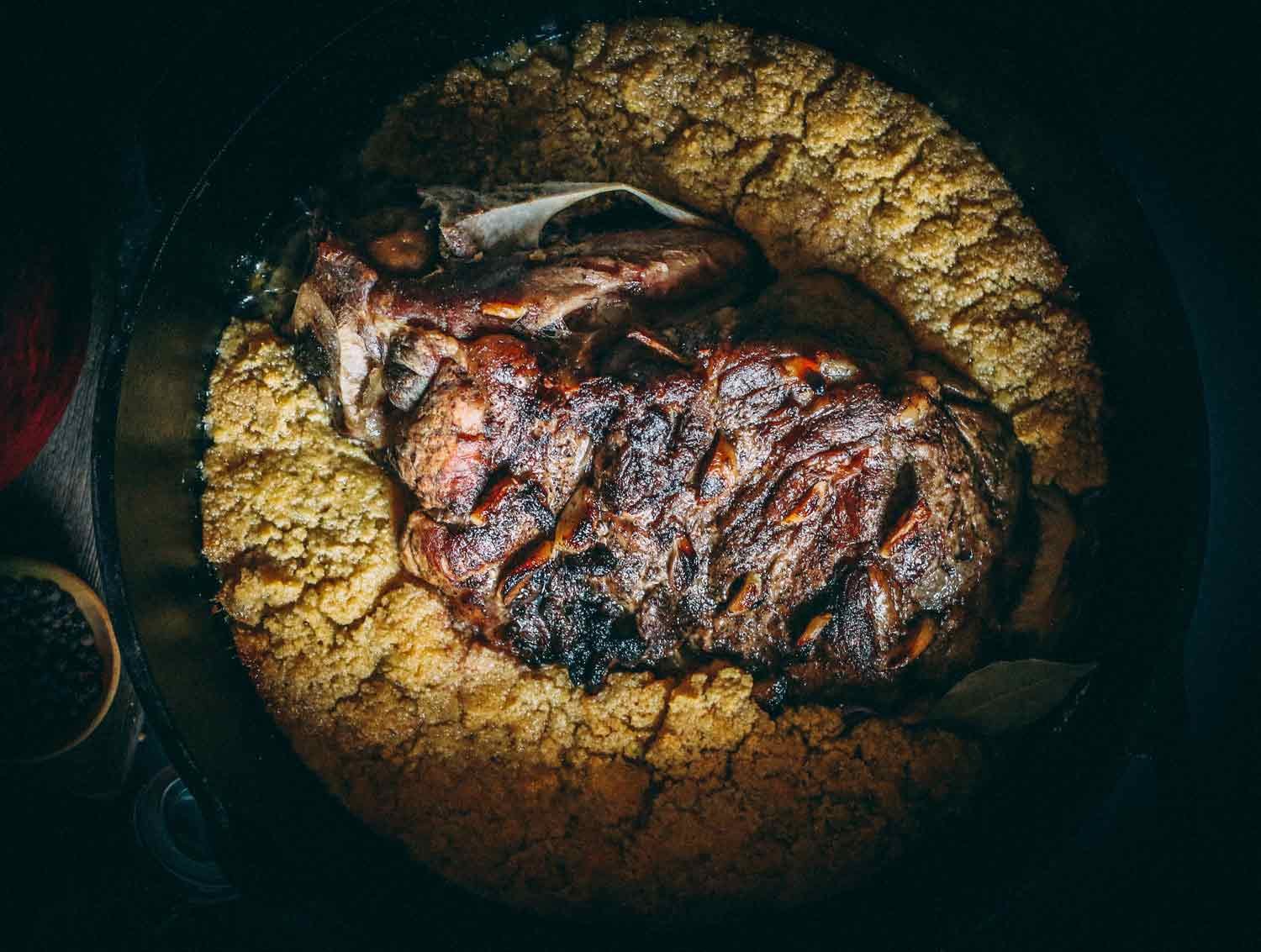In Germany, eating sauerkraut on New Year's has been a long-standing tradition and was later brought to the United States by the Pennsylvania Dutch. It was thought that a pork and sauerkraut meal on New Year's Eve or New Year's Day would secure good luck in the coming year. Growing up in Central Pennsylvania, where there is a strong Pennsylvania Dutch presence, this has been a traditional meal in my family for many generations. To maximize the nutrition in this feast, I've made a couple adjustments to the custom. Be sure to source an organically-raised pastured pork shoulder or loin to minimize exposure to toxins and increase nutrient density in the final product. Probably the most important aspect of this recipe is to utilize raw lactofermented cabbage that you've made yourself or purchased from a trusted source. Do not heat the sauerkraut as it would kill the beneficial microbes that aid in digestion of the meal. Although our family does consume quality pork as a treat from time to time, if you would like to substitute a grassfed beef roast, it will be equally delicious.
Pork Roast Ingredients
4-5 pound pastured pork loin or shoulder
4 cloves garlic, peeled and sliced
2 tablespoon butter, lard, or coconut oil
1 teaspoon sea salt
1 teaspoon black pepper
1-2 vidalia onions, peeled and sliced
1-2 cups bone broth
2 teaspoons caraway seeds, rosemary, or coriander (optional)
1 bay leaf (optional)
Preheat oven to 300 degrees. Pat roast dry with a paper towel. Poke the roast with a sharp knife to make many small holes in the meat and place a slice of garlic in each opening. Salt and pepper the roast. Melt your fat of choice in a large pan over medium high heat. Sear each side of the meat for about 5 minutes or until lightly browned. Place the roast in a large lidded dutch oven. Pour broth into the bottom and arrange onions around the roast. Sprinkle with caraway seeds and bake covered for about 2 and a half hours, or until meat thermometer inserted to thickest part of the roast reads 145 degrees. Remove from the oven and let it stand for 15 minutes before slicing. If preparing dumplings, add them to the cooking liquid and leave the lid off for the last 20 minutes of baking.
Dumpling Ingredients
1/2 cup arrowroot flour
1/4 cup almond flour or meal*
1/4 cup coconut flour
2 eggs
2 tablespoons kefir
1/2 teaspoon salt
1/2 teaspoon baking soda
In a medium sized bowl, mix dry ingredients until well incorporated. In a separate bowl, vigorously whisk eggs and kefir together and pour over dry ingredients. Using a fork or your hands mix until a tight batter forms. Spoon teaspoon-sized dollops into the cooking liquid around the roast. Bake uncovered for the last 20 minutes of cooking.
*Sprouted almonds can be ground into a fine flour for this recipe.





